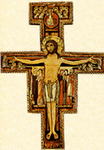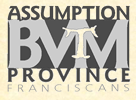 Prayer Service after shooting incident in Omaha, NE
Prayer Service after shooting incident in Omaha, NEAn Amish school near Lancaster, PA in 2006, Virginia Tech this past spring, and now just recently a shopping mall in Omaha, NE and a church and missionary school in Colorado Springs, CO. It seems too frequent now – deliberate shootings at innocent people. It seems there have been increasing numbers of shootings most often random.

What is happening?
Wounded victim being removed from the mall in Omaha, NE
I don’t presume to have an answer, but I’d like offer some thoughts on the matter.
First, it seems that all the assailants are, at the very least, psychologically disturbed. From the evidence I have read, they tend to be loners and disconnected from human interaction.
They seem to have found some kind of weird “connection” with people by killing them!
Perhaps the “connection” is really about power.
The individuals involved in these violent acts also seem to have no concept of how these acts hurt not only their victims, but the families of the victims and their own families!
There doesn’t seem to be any sense of conscience; hence, no remorse.
It seems to be a question of power – power over others whom they perceive at least represent those who have wronged them, excluded them, betrayed them or otherwise ignored them. It appears to be a rage that turns into a vicarious vengeance.
And it also seems to be nihilistic. There seems to be no apparent thought (who can interview someone who has committed suicide after the killings, or who has been slain?) about their future, either temporal or eternal.
There is apparently nothing for them – no hope, no apparent relationships to hold them, no reason to go on. And where, if it exists at all, does faith come into the picture?

The young man who opened fire on the horrified shoppers in Omaha and then killed himself apparently left a suicide note which concluded, “Now I’ll be famous.”
A very touching scene for me, at least, was an image of the prayer service at a local Catholic Church in which people lit candles in memory of the slain, and someone included the assailant’s name among the deceased.
Young people among horrified shoppers at mall in Omaha, NE
In this Season of Advent we read and hear the marvelous Scripture passages, especially from the Prophet Isaiah, which foretell the reign of Messiah, when there will be an end to violence and peace will flourish. But we continue to see the evils of violence all around us!

Name of assailant is included among the names of the nine deceased persons at Prayer Service, Omaha, NE
What is this all about?
We Christians affirm that Jesus of Nazareth is the Messiah and the Lord. We also claim to believe, as we profess in the Lord’s Prayer (Our Father), “thy kingdom come, thy will be done on earth as it is in heaven.”
What we claim is mighty bold – we claim that we believe, in prayer and our celebration of the Sacraments, that God is establishing his kingdom among us, even in the midst of warfare, terror and violence.
We Franciscan friars say to a mad world that seems more and more nihilistic and sees no purpose for existence that life is a gift from God and precious to God, even the life of someone who commits unspeakable violence and affronts common human sensibilities with senseless rage. We struggle to focus on Jesus Christ, even when tempted to surrender to the insanity of violence or the stunning silence of apathy.
Like our founder St. Francis of Assisi, who loved Jesus as the Center of his very life, we believe and proclaim that real power comes not from doing violence against another, whether a vendetta against another or others. Yes, one may have power to take another person’s life. But for what? Death? Then what?
Instead, real power comes from God who is the Author of Life. And this power is to give life, to forgive, to renounce grudges, to seek out those who are oftentimes abandoned by society, who are “benignly neglected” because they are different or odd or just don’t “fit in” to our notions of belonging. Maybe even those who reject society because of mental illness or other affliction.
Would someone’s outreach to these loners have possibly stopped a massacre? I don’t presume to know an answer to that. And I don’t think trying to assign guilt is helpful.
Rather, it seems to me, the Christian vocation – and as a Franciscan friar and priest of the Catholic Church I particularly feel this – our life in Christ is to allow God’s grace, already within us from our baptism and confirmation, and from our reception of the Holy Eucharist, to become visible in our society.
That can readily become healing in our world. To take the Lord at his Word and believe those powerful texts of Sacred Scripture, like St. Francis and St. Clare did, and to believe that God is, indeed, effecting them in our lives – that is the hopeful message of Advent.
How can we respond as Christians to such evil? How do you think God is calling
you to respond? How do
you think you can bring God's hope into this world?
 Some musings of a Franciscan friar in a Midwestern winter:
Some musings of a Franciscan friar in a Midwestern winter: Maybe that's just how our lives are -- adjusting to the fluctuations that happen beyond our control. Economic downturn, violence both near and far, insecurity at work, a loved one's illness. I don't think it means we're "powerless", at least not completely so.
Maybe that's just how our lives are -- adjusting to the fluctuations that happen beyond our control. Economic downturn, violence both near and far, insecurity at work, a loved one's illness. I don't think it means we're "powerless", at least not completely so.
















